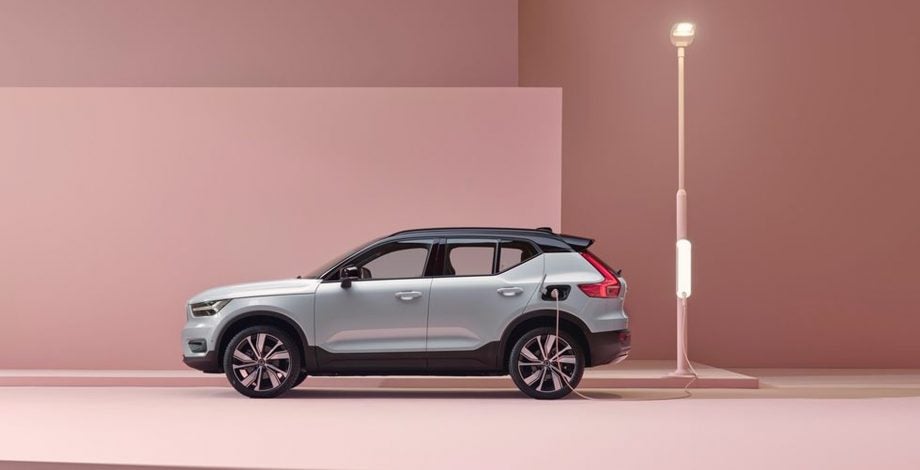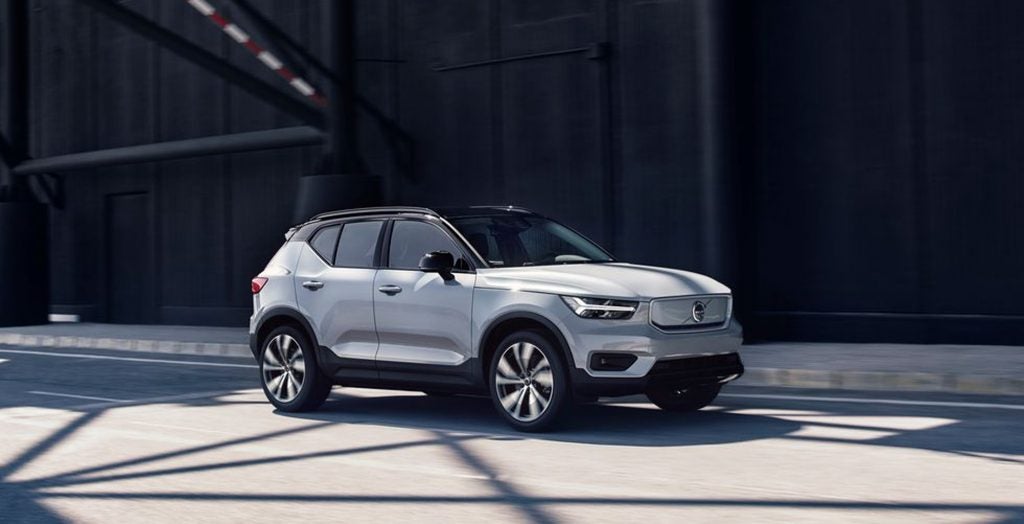Volvo’s XC40 Recharge is its first all-electric car and Android is built-in

Volvo has announced its first fully electric car, the XC40 Recharge, along with a pledge to make the company carbon neutral 20-years from now.
The XC40 Recharge Compact Crossover SUV is the first in a new series of vehicles and will have Google’s new Android Automotive software built right in.
Volvo says the car has an all-wheel drive powertrain with 402 horsepower, while the battery will get you 400km (248 miles) on a single charge. The EPA-rated range is likely to be around 200 miles, putting it below the 240 miles offered by the Tesla Model 3 Standard Range, for example.
Furthermore, that 78 kilowatt-hour battery can be replenished by 80% in just 40 minutes, providing the fastest available charging solution is deployed. In terms of speed, it’ll get you from 0-60mph in under five seconds (4.8 seconds to be precise).
Related: Dyson abandons electric car plans
Android is embedded into the infotainment system, and will provide access to the Google Assistant, Google Maps and the Play Store. Just like Tesla electric vehicles, software and operating system updates will be delivered over the air.
“So now the XC40 will stay as fresh as your phone or tablet, and no longer will a car’s best day be the day it leaves the factory,” Volvo CTO Henrik Green said during the launch in Los Angeles on Wednesday..
Volvo hasn’t announced official pricing yet, but pre-orders in the US are live ahead of the Q4 2020 release. You’ll need to fork over $1,000 to reserve the vehicle, with the price expected to come in at just under $50,000. European release plans have not yet been announced. We’ve contacted Volvo for confirmation.

All of Volvo’s plug-in hybrid and electric cars moving forward will be sold under the Recharge brand name. It says it hopes that 50% of all its car sales will be all-electric by 2025, while completely wiping out its carbon emissions by 2040.
Volvo CEO Håkan Samuelsson said in a press release: “We are transforming our company through concrete actions, not symbolic pledges. So at Volvo Cars we will address what we control, which is both our operations and the tailpipe emissions of our cars. And we will address what we can influence, by calling on our suppliers and the energy sector to join us in aiming for a climate neutral future.”
“Other short-term ambitions include a 25% reduction of CO2 emissions related to its global supply chain by 2025, a 25% share of recycled plastics in new Volvo cars by 2025, and a 25% reduction of carbon emissions generated by the company’s overall operations, including manufacturing and logistics.”


